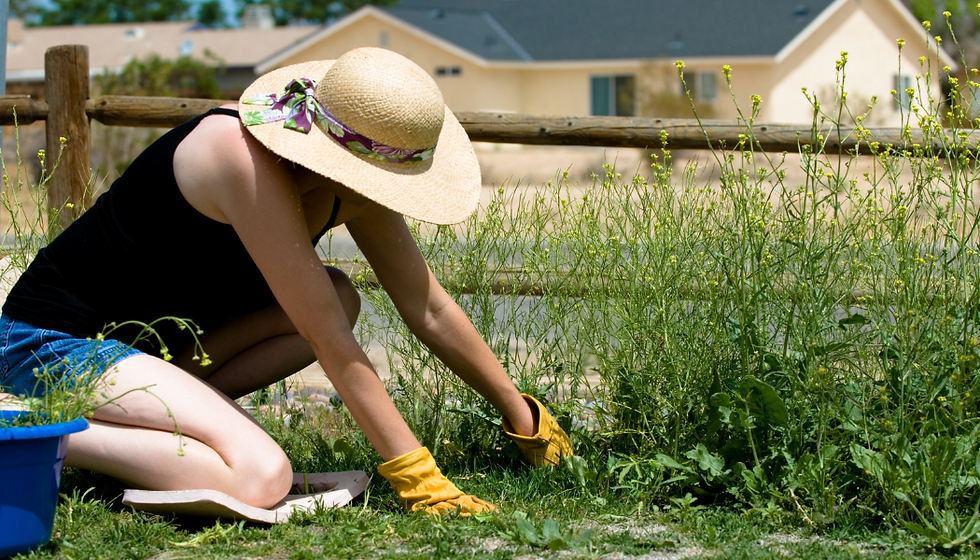Environment Friendly Weed Control
- All Ontario Hydroseeding - Cher Savage

- Jun 4, 2024
- 2 min read

Transition from harmful chemicals to safe weed control methods for a better lawn care approach. Instead of using chemical solutions, consider natural alternatives readily available in your kitchen. With a few simple mixtures, you'll be all set! Once you've dealt with the weeds, focus on filling those bare spots with fresh grass to prevent weed regrowth.
One effective natural weed killer is a mixture of vinegar, salt, and dish soap. The acetic acid in vinegar works to dry out the weeds, the salt makes the soil less hospitable to future weeds, and the dish soap helps the solution stick to the leaves. Simply combine one gallon of white vinegar, one cup of salt, and one tablespoon of dish soap in a spray bottle and apply it directly to the weeds on a sunny day.
Environment Friendly Weed Homemade weed killers are generally safer for your health and the environment. Many commercial weed killers contain chemicals like glyphosate, which have been linked to health issues ranging from skin irritation to more serious concerns like hormone disruption and cancer. In contrast, homemade options often use natural ingredients such as vinegar, salt, and dish soap, which are much less harmful to humans, pets, and wildlife.
Store-bought weed killers can be detrimental to the environment, contaminating soil and water sources, and harming beneficial insects like bees and earthworms. Homemade weed killers, on the other hand, typically break down more quickly in the environment and are less likely to cause long-term ecological damage. By using natural ingredients, you’re also reducing your carbon footprint since these products often require less energy to produce and transport.

Homemade weed killers are often more cost-effective than their commercial counterparts. Ingredients like vinegar and salt are inexpensive and readily available, allowing you to create an effective weed killer at a fraction of the cost. Additionally, by making your own, you can mix only what you need, reducing waste and ensuring that you're not paying for excess product that may go unused.
When you make your own weed killer, you have complete control over the ingredients and their concentrations. This allows you to tailor the formula to your specific needs, such as targeting different types of weeds or adjusting the strength for different areas of your garden. Store-bought options often come in one-size-fits-all formulas that may not work as effectively in your particular situation.
In summary, homemade weed killers offer a safer, more environmentally friendly, and cost-effective alternative to store-bought products. Plus, they give you the flexibility to create a solution that’s perfect for your garden’s unique needs.
Once your lawn is weed-free, it's important to maintain it properly to discourage future weed growth. Regular mowing, watering, and fertilizing will help your grass grow thick and strong, leaving little room for weeds to take hold. Additionally, overseeding your lawn annually can help fill in any thin spots, creating a lush, green carpet that is both beautiful and resilient.
By using these natural methods, you can achieve a healthy, vibrant lawn without relying on harmful chemicals. Not only will your lawn look great, but you'll also be contributing to a safer, more sustainable environment for your family and the local wildlife.
Don't forget to check out our other blog on Pet Friendly recipes for more Environment Friendly Weed Control.



Comments